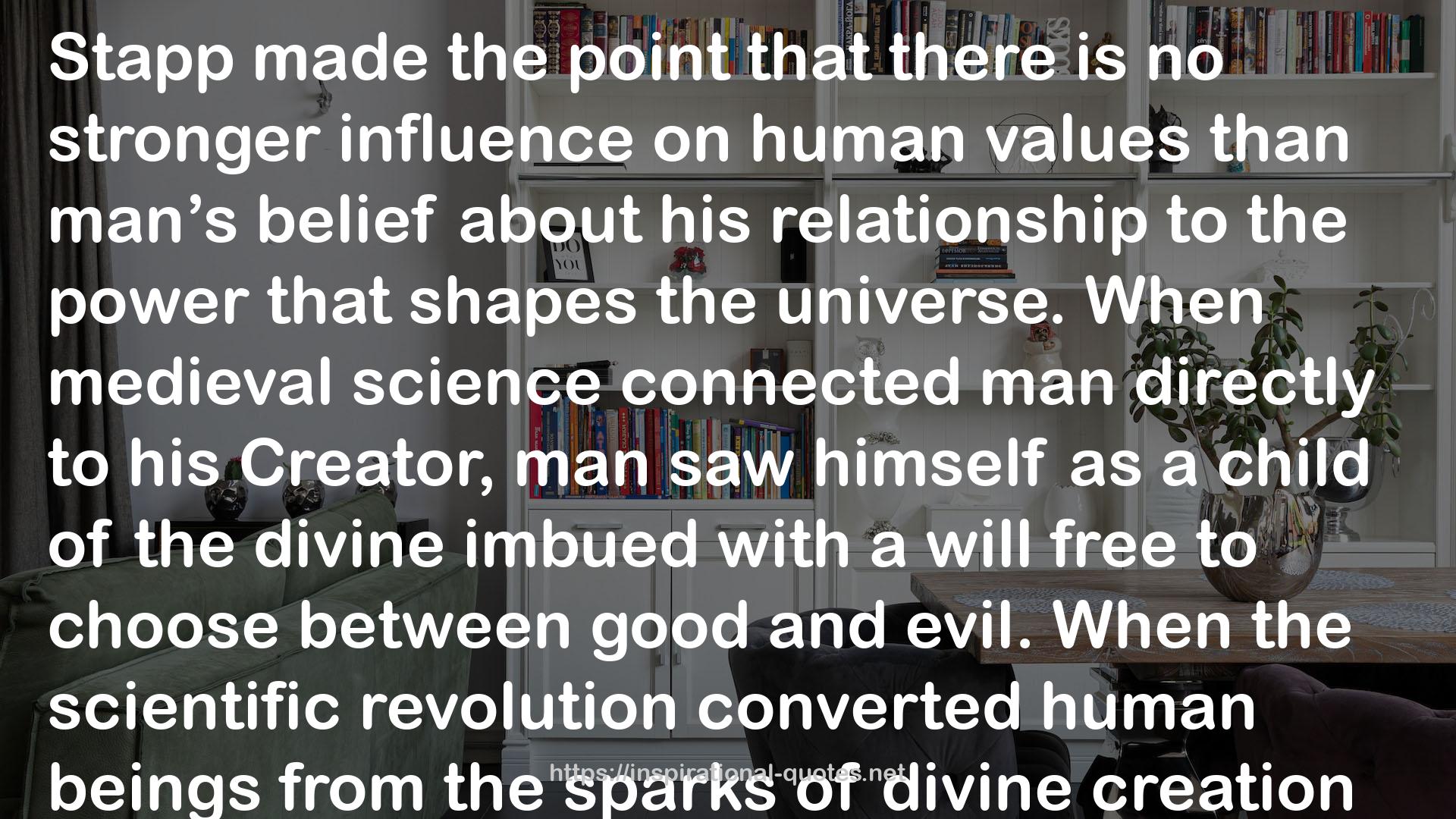" Stapp made the point that there is no stronger influence on human values than man’s belief about his relationship to the power that shapes the universe. When medieval science connected man directly to his Creator, man saw himself as a child of the divine imbued with a will free to choose between good and evil. When the scientific revolution converted human beings from the sparks of divine creation into not particularly special cogs in a giant impersonal machine, it eroded any rational basis for the notion of responsibility for one’s actions. We became a mechanical extension of what preceded us, over which we have no control; if everything we do emerges preordained by the conditions that prevail, then we can have no responsibility for our own actions. “Given this conception of man,” Stapp argued, “the collapse of moral philosophy is inevitable.” But just as Newtonian physics undermines moral philosophy, Stapp thought, so quantum physics might rescue it. For quantum physics describes a world in which human consciousness is intimately tied into the causal structure of nature, a world purged of determinism. "
― Jeffrey M. Schwartz , The Mind and the Brain: Neuroplasticity and the Power of Mental Force
